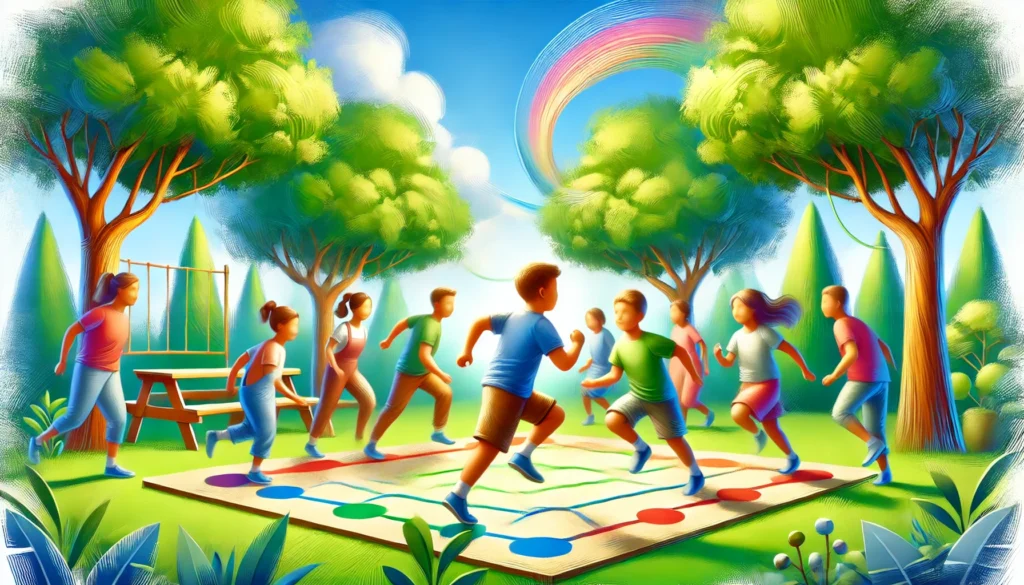In our fast-paced world, where efficiency and focus are paramount, having a robust working memory is more critical than ever. Working memory is the brain’s ability to hold and process information in real-time, playing a pivotal role in problem-solving, decision-making, and learning. From academic success to professional achievement, a strong working memory forms the foundation for cognitive excellence.
Whether you are striving to excel at work, improve your academic performance, or foster better cognitive skills in children, enhancing working memory is a game-changer. Fortunately, there are engaging and scientifically backed ways to boost this cognitive function—working memory games. These games are not just for entertainment; they’re powerful tools that strengthen mental agility and enhance focus. In this article, we will delve into the best working memory games, exploring their benefits and providing actionable strategies to integrate them into your daily routine. Let’s unlock the secrets to sharper recall and greater cognitive resilience.
You may also like: How to Improve Working Memory: Top Short-Term Boosters and Practical Tips
Understanding Working Memory
What Is Working Memory?
Working memory is the cognitive system responsible for temporarily holding and processing information. Unlike short-term memory, which stores information passively, working memory actively manipulates data for decision-making, problem-solving, and learning.
For example, when solving a math problem, working memory allows you to retain the numbers and rules needed to compute the solution. Similarly, it helps you remember and connect points during a conversation, enhancing communication skills.
Why Is Working Memory Important?
Strong working memory underpins a wide range of daily activities, including:
- Academic Success: Enables better comprehension and retention of information in subjects like reading and math.
- Professional Efficiency: Facilitates multitasking, decision-making, and project management.
- Social Interactions: Enhances the ability to follow and contribute to conversations.
The benefits of improving working memory extend to reducing forgetfulness, boosting focus, and enhancing overall cognitive resilience.
The Science Behind Working Memory Games
Working memory games are structured activities designed to target and enhance specific cognitive functions. Research in neuroscience and psychology highlights the role of repetitive practice in strengthening neural pathways. These games improve synaptic connections in the prefrontal cortex and parietal lobe—regions of the brain associated with memory and attention.
Engaging in games to increase working memory is particularly effective because they combine challenge, novelty, and reward—elements that stimulate neuroplasticity. By consistently practicing these games, individuals can achieve measurable improvements in memory retention, processing speed, and mental flexibility.
Best Games to Improve Working Memory
1. Dual N-Back
The Dual N-Back game is a scientifically validated tool for enhancing working memory. It requires players to monitor visual and auditory stimuli simultaneously and identify when these stimuli match ones from previous rounds.
How It Works:
- Players are presented with a grid and a series of spoken letters.
- They must remember the position of squares and the sequence of letters from one or more steps back.
- The game’s difficulty adjusts dynamically, ensuring continuous engagement.
Cognitive Benefits:
- Improves multitasking skills.
- Enhances mental stamina and attention span.
- Strengthens neural pathways for better information retention.
2. Memory Card Matching Games
Memory card games, often referred to as “Concentration” or “Pairs,” are classic tools for improving short-term and working memory.
How It Works:
- Players turn over cards in pairs, aiming to find matching sets.
- The challenge is to remember the location of previously flipped cards.
Cognitive Benefits:
- Strengthens pattern recognition and spatial memory.
- Encourages focused attention and strategic planning.
- Accessible to players of all ages, making it an excellent working memory game for kids.
3. Simon Says
Simon Says is a fun and interactive game that sharpens auditory working memory and attention.
How It Works:
- A leader gives a series of commands, prefaced with “Simon says.”
- Participants must follow only the commands preceded by “Simon says.”
Cognitive Benefits:
- Enhances auditory processing and impulse control.
- Improves selective attention and instruction-following skills.
- Ideal for group settings, fostering social and cognitive engagement.
Digital Platforms for Working Memory Games
In the digital age, numerous apps and online platforms offer engaging working memory games. These tools leverage gamification to make cognitive training accessible and fun.

1. Lumosity
Lumosity is a popular brain-training app with tailored games targeting various cognitive skills, including working memory.
Features:
- Personalized training programs.
- Detailed progress tracking.
- Games like “Memory Matrix,” which challenges spatial memory.
2. CogniFit
CogniFit offers a suite of scientifically backed games to improve working memory and other cognitive functions.
Features:
- Cognitive assessments to identify areas of improvement.
- Adaptive difficulty levels.
- Games designed for both individuals and professionals.
3. Peak
Peak is another leading app, known for its intuitive interface and diverse game selection.
Features:
- Games like “Must Sort” that require quick decision-making and memory recall.
- Daily workout plans for continuous progress.
- Insights into cognitive performance trends.
Working Memory Games for Kids
Engaging children in games to improve working memory not only enhances their cognitive skills but also fosters a love for learning. Here are some tailored activities for younger audiences:
1. I Went to the Market
This verbal game challenges kids to remember and repeat a growing list of items.
How It Works:
- Players take turns adding an item to a list.
- Each player must recall the entire list before adding their item.
Benefits:
- Boosts auditory memory and sequencing skills.
- Encourages language development.
- Can be played anywhere, making it highly versatile.
2. Red Light, Green Light
This classic game is excellent for improving attention and impulse control.
How It Works:
- A leader calls out “green light” to signal movement and “red light” to stop.
- Players must remember the rules and respond accordingly.
Benefits:
- Strengthens working memory and reaction time.
- Promotes self-regulation.
3. Spot the Difference
Spot the Difference puzzles engage children’s visual working memory by requiring them to identify subtle changes between two images.

Benefits:
- Enhances attention to detail.
- Develops visual discrimination skills.
Integrating Working Memory Games into Daily Life
The true power of working memory games lies in their versatility. These activities can be seamlessly incorporated into daily routines, ensuring consistent cognitive engagement.
Tips for Integration:
- Start Small: Dedicate 10-15 minutes daily to playing memory games.
- Use Breaks Effectively: Engage in quick games during work or study breaks to recharge focus.
- Create a Routine: Schedule game time, making it a regular part of your day.
- Involve Others: Turn memory games into family or team-building activities to increase motivation and enjoyment.
The Broader Benefits of Working Memory Games
Beyond improving memory, these games contribute to:
- Enhanced Problem-Solving: By improving information processing.
- Better Emotional Regulation: Through increased cognitive control.
- Reduced Stress: By offering enjoyable mental exercises.
Conclusion: Elevate Your Cognitive Potential with Working Memory Games
As we navigate a world teeming with challenges and opportunities, our ability to process and recall information can make all the difference. Working memory games provide a dynamic, effective way to hone this vital skill, offering benefits that extend beyond the mind to every facet of life.
By incorporating these games into your routine, you can unlock sharper recall, enhanced focus, and greater mental resilience. Whether you are exploring options for yourself or searching for working memory games for kids, these tools cater to all ages and needs. Start your journey toward cognitive mastery today, and discover the transformative power of a stronger, more agile mind. The possibilities are endless when your memory is empowered to its fullest potential.
Further Reading
SoM: Boost Your Brain: Working Memory Exercises for Adults
ND: 12 Fun Working Memory Games And Activities For Adults
LH: 25 Memory Exercises That Actually Help You Remember More
MND: 22 brain exercises to improve memory, cognition, and creativity
MMM: How to Improve Working Memory: 8 Exercises That Work
Important Note: The information contained in this article is for general informational purposes only, and should not be construed as health or medical advice, nor is it intended to diagnose, prevent, treat, or cure any disease or health condition. Before embarking on any diet, fitness regimen, or program of nutritional supplementation, it is advisable to consult your healthcare professional in order to determine its safety and probable efficacy in terms of your individual state of health.
Regarding Nutritional Supplements Or Other Non-Prescription Health Products: If any nutritional supplements or other non-prescription health products are mentioned in the foregoing article, any claims or statements made about them have not been evaluated by the U.S. Food and Drug Administration, and such nutritional supplements or other health products are not intended to diagnose, treat, cure, or prevent any disease.


